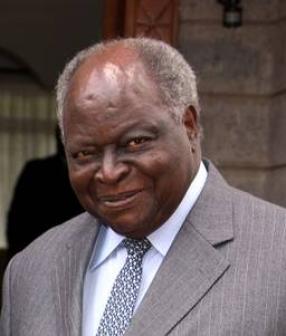Africa's governments should "put resolute actions in favour of water and should confront the immediate challenges of scarcity of safe and clean water." a plea by Hon. Kibaki at the opening of the 6th Africa Water Week (AWW) in Dar es Salaam, Tanzania.
Published on: 20/07/2016

Hon. Mwai Kibaki, former President of the Republic of Kenya and UNESCO Special Envoy for Water in Africa has called on all Water, Sanitation and Hygiene (WASH) implementers, funders and investors to work at enabling Africa to “drive her own WASH destiny and rise to the occasion of addressing the WASH challenges facing the continent at all fronts”.
Hon. Kibaki issued the plea at the opening of the 6th Africa Water Week (AWW) in Dar es Salaam, Tanzania. He noted that the “water situation in Africa calls for urgent action and the time is now for countries to adopt the right avenues and measures to ensure security of the already available water.” He also suggested that Africa’s governments should “put resolute actions in favour of water and should confront the immediate challenges of scarcity of safe and clean water.”
“Scarcity of water has a rights impact on the populations of Africa in terms of health and needs of the elderly” Hon. Kibaki emphasised. He further appealed for “deliberate and conscious efforts by governments towards increased public financing and improved WASH technologies appropriate for the people”.
On issues of water management, Hon. Kibaki stressed the dire need to “advocate for better WASH governance in Africa, governance that will inspire our children to transform this well-endowed African continent for the better”. “It is possible to create new centres of excellence in Africa, to inspire practices and encourage greater participation of our people in transforming Africa. Though governments have full responsibility to deliver WASH services to the people, they alone cannot move the many mountains and neither can funders and other partners. The good will of government and the people is thus a prerequisite” Hon. Kibaki added.
Additionally, Hon. Kibaki emphasised “the need to enable the people of Africa to realise that Africa’s WASH afflictions are similar and it is therefore possible to use common interventions to solving the problems”. “We should therefore “remember that we owe our citizens a new direction that explains the why, how and what. We need to commit ourselves to turning actions into real reforms and together we can make Africa water secure and peaceful especially in water conflict areas of the great continent” he concluded.